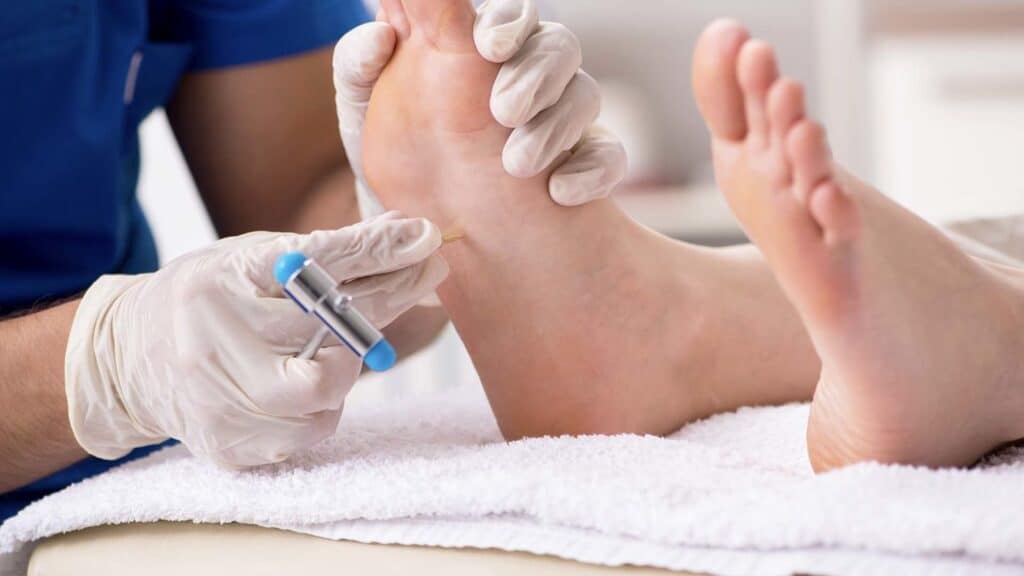Diabetes is a chronic condition that affects millions of people around the world. One of the most significant complications of diabetes is the increased risk of foot problems, which can lead to serious infections and even amputations if not properly managed. In this article, we will discuss Diabetic Footcare and provide tips on how to keep your feet healthy and free from complications.
Why Diabetic Footcare is Important
People with diabetes are at a higher risk of developing foot problems due to several factors. One of the most significant factors is nerve damage or neuropathy, which can cause loss of sensation in the feet. When you cannot feel your feet, you may not notice if you have a cut or blister, which can lead to infection. Diabetes also affects the blood flow to the feet, making it harder for wounds to heal.
Diabetic Footcare is critical for diabetics because it can prevent or reduce the risk of complications. Proper foot care can help diabetics avoid foot ulcers, infections, and amputations. Foot care also plays a crucial role in managing diabetes by helping to control blood sugar levels.
Tips for Foot Care for Diabetics
Here are some tips for foot care for diabetics:
- Check Your Feet Daily
Checking your feet every day is essential for diabetics. Look for any signs of redness, swelling, cuts, or blisters. Use a mirror or ask someone to help you if you have trouble seeing your feet.
- Wash Your Feet Every Day
I huge part of Diabetic Footcare is to wash your feet every day with warm water and mild soap. Avoid using hot water, which can cause burns. Dry your feet thoroughly, especially between the toes.
- Moisturize Your Feet
Moisturize your feet with a non-greasy lotion or cream to keep your skin soft and prevent cracking. Avoid moisturizing between the toes, as it can lead to fungal infections.
- Trim Your Nails Properly
Trim your toenails straight across and file the edges. Avoid cutting the corners of your toenails, as it can cause ingrown toenails.
- Wear Proper Footwear
Wear shoes and socks that fit well and provide proper support. Avoid shoes that are too tight or too loose. Check the insides of your shoes before putting them on to make sure there are no sharp edges or objects inside. Diabetic socks are also a great help.
- Protect Your Feet
Wear shoes or slippers at all times, even indoors, to protect your feet from injury. Avoid walking barefoot, especially outdoors.
- Manage Blood Sugar Levels
Keeping your blood sugar levels under control is crucial for foot health. High blood sugar levels can damage nerves and blood vessels, leading to complications.
- Visit a Podiatrist
Regular visits to a podiatrist can help diabetics prevent foot problems or catch them early. A podiatrist can also help with toenail trimming, callus removal, and other foot care.
What to Do if You Notice Foot Problems
If you notice any foot problems, such as cuts, blisters, or redness, take action immediately. Here are some steps you can take for diabetic footcare:
- Clean the Affected Area
Clean the affected area with mild soap and warm water. Avoid using hot water or harsh chemicals, which can irritate the skin.
- Apply an Antibiotic Ointment
Apply an antibiotic ointment to the affected area to prevent infection.
- Cover the Wound
Cover the wound with a sterile bandage or dressing to protect it from further injury.
- Rest Your Feet
If you have a foot problem, try to stay off your feet as much as possible until the problem resolves.
- Seek Medical Attention
If the problem does not improve or gets worse, seek medical attention immediately
Tags: diabetic footcare, feet, foot care, footcare, healthy feet
